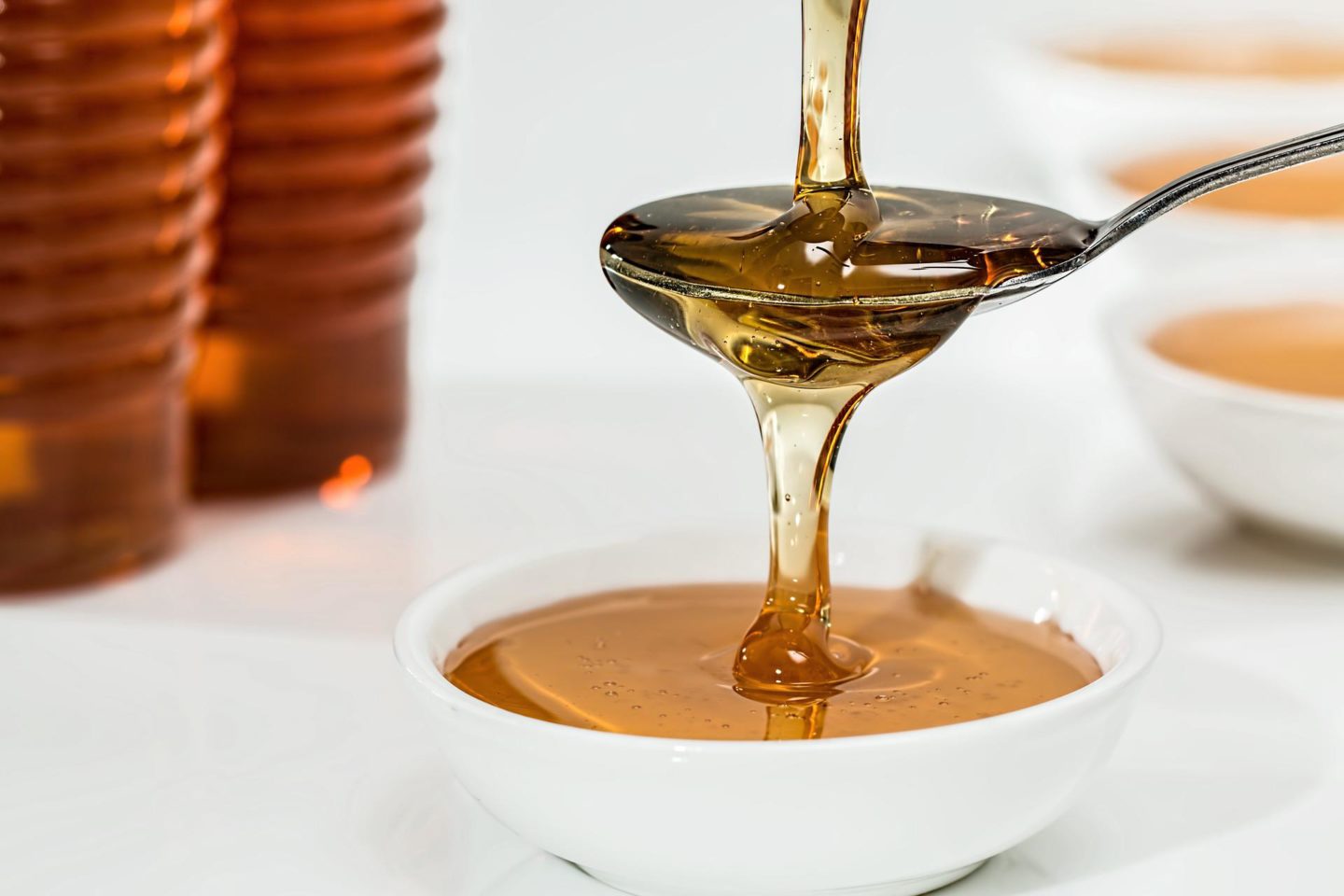
Sweet treats are a hot topic of conversation in magazine offices. In the three years that I have been in my media bubble, I’ve lost count of the amount of times I’ve overheard women (and men for that matter) berate themselves for daring to indulge in a couple of handfuls of dark chocolate over the weekend.
With the government’s sugar tax about to hike up the price of your fave fizzy drink by 24p per litre and countless magazines ordering you to “quit sugar”, it’s hardly surprising that we hate-to-love the sweet stuff. Not only does this atmos-fear (sorry) make cake Fridays a lonely affair, but for a reason which I will never understand, every celebrity/reality TV star/girl who was in a magazine one time, has taken it upon themselves to warn us of the ‘life-threatening’ effects of the little, white granules. Thanks for the heads up guys, but I think I’ll ask my doctor for health advice, as opposed to the cast of Hollyoaks. Whilst it may be statistically true that we – as a country – are probably consuming a bit too much sugar, the current moral panic is both uncalled for and unscientific. After witnessing one of my all-time favourite telly personalities (not anymore dw) refer to sugar as, “the devil”, on a popular Saturday morning cookery show, I decided that if she could spout “facts” about sugar, then so could I. The difference, of course, is that my take on the sugar debate would be based on the knowledge of qualified, medical professionals.

Let’s start with the basics. What actually is sugar and how does it work in the body? According to the World Sugar Research Organisation, all sugars are a type of carbohydrate and hence, once digested, are converted into single, molecular sugars. These are then absorbed into the intestine and used as energy for cellular functions. In other words, dietary sugar is converted to molecular sugar, whether you get it from a packet of Haribo or a tablespoon of Agave Nectar.
Here’s another sciencey bit and then I promise I’ll stop with the big words. There are three different types of sugars:
1. MONOSACCHARIDES (i.e blood sugar, fructose and galactose)
2. DISACCHARIDES (i.e sucrose, aka table sugar and milk sugars)
3. POLYOLS (sugar alcohols, artificial sweeteners that contain less calories than other
“Dietetic experts still encourage including “free” sugar as part of a healthy, balanced diet”
NB: This is an extremely simplified definition of sugar. There are lots more intricate details and chemicals that play an important role which I do not understand and may or may not be able to pronounce. Check out our very clever Registered Nutritionist friend Laura Thomas’ explanation for a better insight. Most of the panic-stricken discussion relates to sucrose , or refined white sugar. This essentially means that all the fibre, nutrients and other microscopic good stuff has been stripped away. On that, sucrose is also often referred to as “free sugars” or “added sugar”. It’s this stuff that health officials are advising us to cut down on – specifically, to constitute just 5 per-cent of our daily calorie intake.
Free sugars, or sucrose, are added to food products by manufactures and used by consumers to sweeten up certain foods – cereal and tea for example. They also feature as a key ingredient for sweet treats (cakes, biscuits, sweets – all the good stuff). Statistically speaking, the UK population (on average) consume over the recommended guidelines of 30g (about 7 sugar cubes) of free sugar per day. However, this does not apply to fruit or naturally occurring sugars found in milk. It does apply to dates, other dried fruit, honey, agave nectar and any other “natural” “unrefined” sugar “alternative”. IT’S ALL STILL SUGAR.
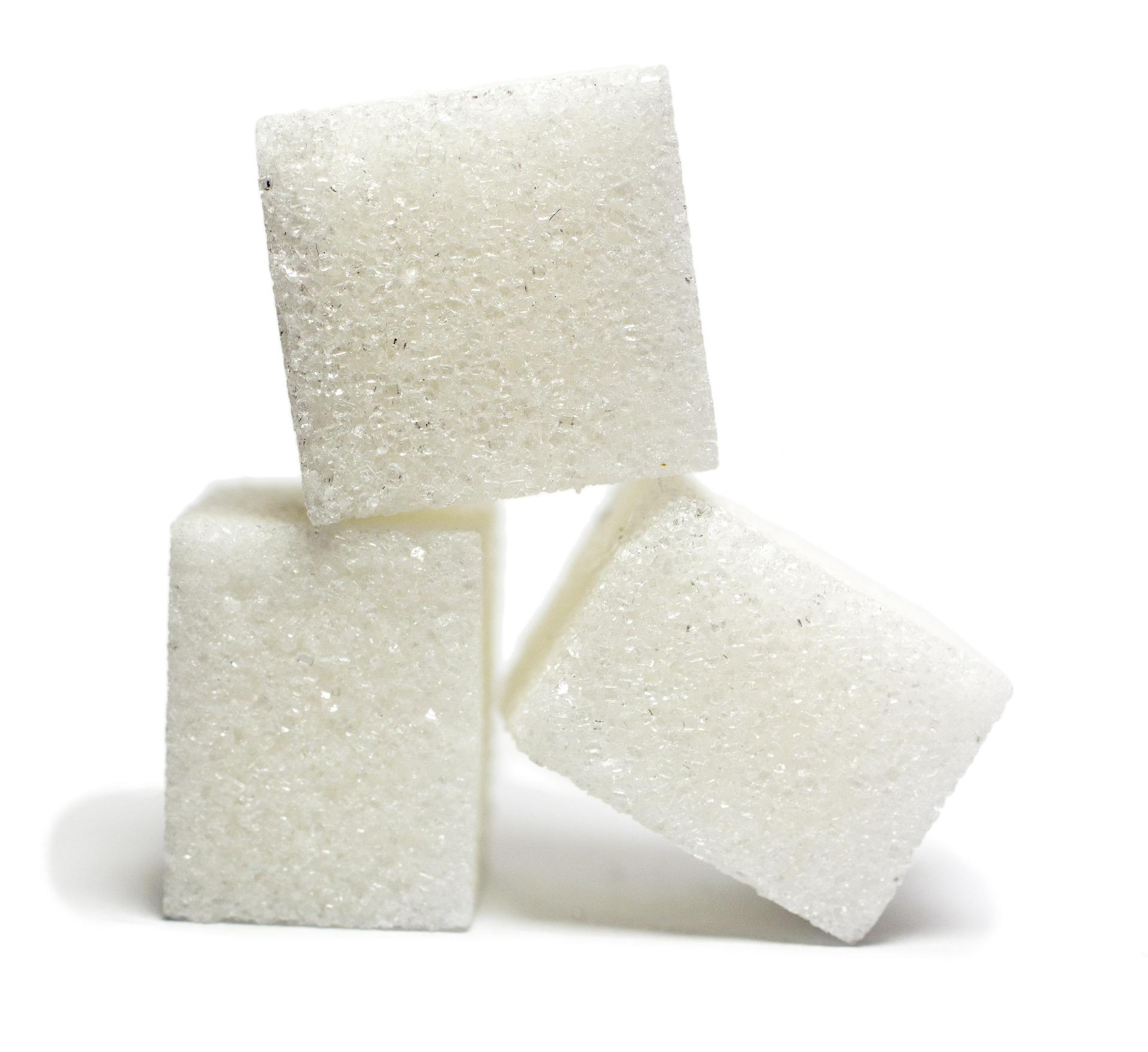
Despite the government’s “action on sugar”, various dietetic experts still encourage including “free” sugar as part of a healthy, balanced diet – up to 7 sugar cubes per day, in fact. To put this in context; that’s about six chocolate digestives.
“Following a sugar-free diet is unrealistic”
Obviously, I’m not telling you to adhere to a strict diet of six Hobnobs everyday, but my point is; if you do happen to eat a few biscuits; a cupcake -even a chocolate bar once in a while – it’s actually fine, and even the experts say so. “Eating the odd sugary food, like cake, biscuits or sweets is not bad for your health,” says Kirsten Crothers, a Registered Dietitian and IBS specialist from the British Dietetic Association. “For most people, following a sugar-free diet long-term is unrealistic and therefore, doesn’t provide any real long-term health benefits.” Take that, popular television star/sugar hater.
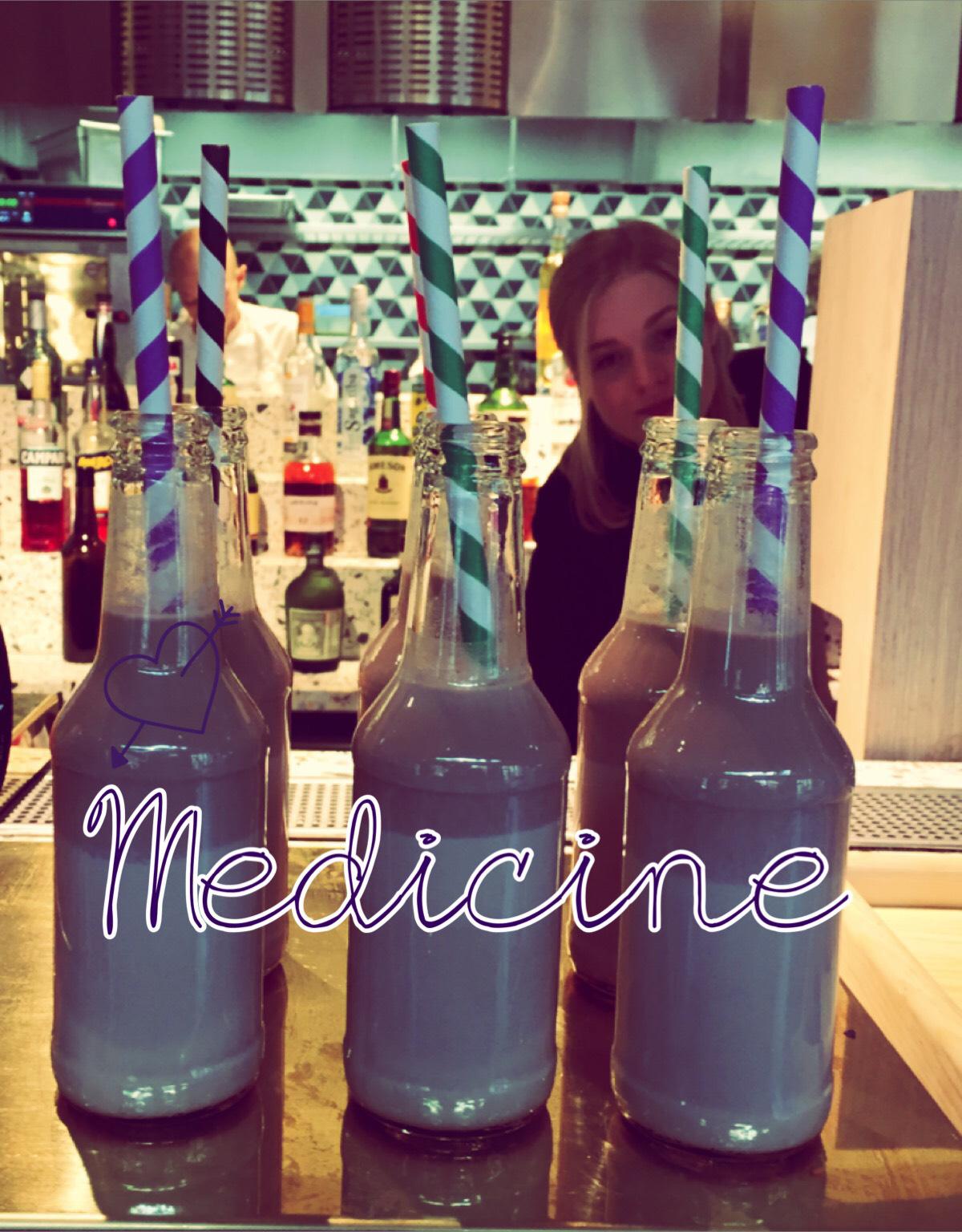
As for the “hidden” sugars that are apparently sneakily infecting our dinners and making us all morbidly obese, the issue is far from as simple as the headlines would have you believe. According to BDA spokesperson and dietitian Frankie Phillips, the reason why sugar is portrayed to cause so many dietary problems is due to the lack of nutrients that come packaged up with our sugary foods. “It can be easy to eat a lot of calories with regards to sugar,” Frankie explains, “we get a lot of calories from food containing sugar without feeling that full – sugar loaded drinks, for example.” It’s not necessarily the sugar itself that may contribute towards obesity, but rather what it does/doesn’t do for our hunger – and that’s without considering the copious co-existing factors which in some cases, are more to blame than diet itself (i.e money/education).
I asked Kristen if sugar is the main culprit to blame for obesity in the UK. “No,” she says. “Obesity has many factors – mental health, education, lack of exercise, income, fat, sugar, cooking skills, access to gyms/parks etc, environment, family life. “People become obese when they continually eat more calories than they burn, it doesn’t matter where these calories come from.” In fact, the experts on a whole are loathed to discuss any singular factor in isolation. Or ingredient, for matter.
“Baked Beans are a great, nutritious meal to make”
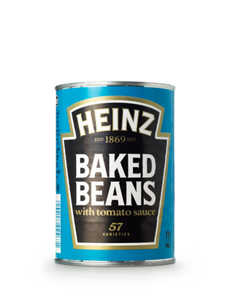 Take the humble Baked Bean. You wouldn’t necessarily lump a tin of the Heinz’ favourite in the same category as a salmon fillet or green salad, but nutritionally speaking, some might say it’s on a par. “Baked Beans are a great, easy meal to make,” says dietitian Frankie Phillips, “you can get low sugar varieties and you get all the nutritional benefits from the fibre, as well as the vegetable protein.” Yep, that’s right, Baked Beans actually come dietitian recommended. Breakfast cereals are another example. Porridge, for instance, is 100 per-cent wholegrain and, providing you don’t add any honey or sugar, it’s totally sugar-free (hence why it’s hailed as the holy grail by “wellness” bloggers). Pretty nutritious, although that doesn’t mean it’s necessarily MORE nutritious than other breakfast options which may contain a teeny, tiny amount of the sweet stuff.
Take the humble Baked Bean. You wouldn’t necessarily lump a tin of the Heinz’ favourite in the same category as a salmon fillet or green salad, but nutritionally speaking, some might say it’s on a par. “Baked Beans are a great, easy meal to make,” says dietitian Frankie Phillips, “you can get low sugar varieties and you get all the nutritional benefits from the fibre, as well as the vegetable protein.” Yep, that’s right, Baked Beans actually come dietitian recommended. Breakfast cereals are another example. Porridge, for instance, is 100 per-cent wholegrain and, providing you don’t add any honey or sugar, it’s totally sugar-free (hence why it’s hailed as the holy grail by “wellness” bloggers). Pretty nutritious, although that doesn’t mean it’s necessarily MORE nutritious than other breakfast options which may contain a teeny, tiny amount of the sweet stuff.
“Breakfast cereals are a great way of getting vitamins and minerals because many of them are fortified,” says Frankie, “which means some vitamins are put into the grains. For instance Weetabix is a great breakfast to have because you’ve got lots of Iron and B Vitamins”. Two Weetabix “biscuits”, by the way, contains just under 2g of sugar, yet some would argue that, due to the amount of vitamins you’re ingesting, it’s a breakfast of higher nutritional value than a bowl of highly Instagrammable porridge. “It’s a case of throwing away the baby with the bathwater,” says Frankie, “you’re not achieving good nutritional balance [by cutting out sugar], so you might get a problem like, perhaps you’re not getting enough iron, or Zinc – you’re replacing sugar with another problem.”
Which leads us nicely onto the juicy subject of fruit juice. With recent evidence prompting us to panic about reaching our “10-a-day”, whilst simultaneously warning us of the perils of anything containing sugar – should we view Robinson’s Fruit Shoot with the same vilification as Coca Cola? One popular health blogger loves to harp on about the benefits of “low sugar” fruit and advocates substituting fruit juice for half a litre of thick, green, liquidised shrubbery. Although, according to the actual experts, fruit juice SHOULD be included as part of our healthy, balanced diets.
“PUTTING YOUR FRUIT IN A JUICER DOESN’T MAKE IT HEALTHIER”
“One portion of fruit juice is 150ml,” says Frankie, “which is quite a small glass of juice. “As well as the free sugars in juice, you get all the benefits of the antioxidants, the vitamin C and the minerals. Whereas with flavoured drinks, you don’t get any of the nutrients.” Basically, if you’re a big OJ fan (the drink, not the murderer), then great! Keep your portion to about 150ml daily and you’ll get all the goodness without too much of the excess sugar. And whilst we’re on the subject of fruit, I’d like to take the opportunity to alert the world to something which has been troubling me lately…
PUTTING YOUR FRUIT IN A JUICER DOESN’T MAKE IT HEALTHIER. Basically, when you “juice” fruit, as opposed to eating it whole, the sugars, which are normally bound in cells, are released and therefore, more “free”.
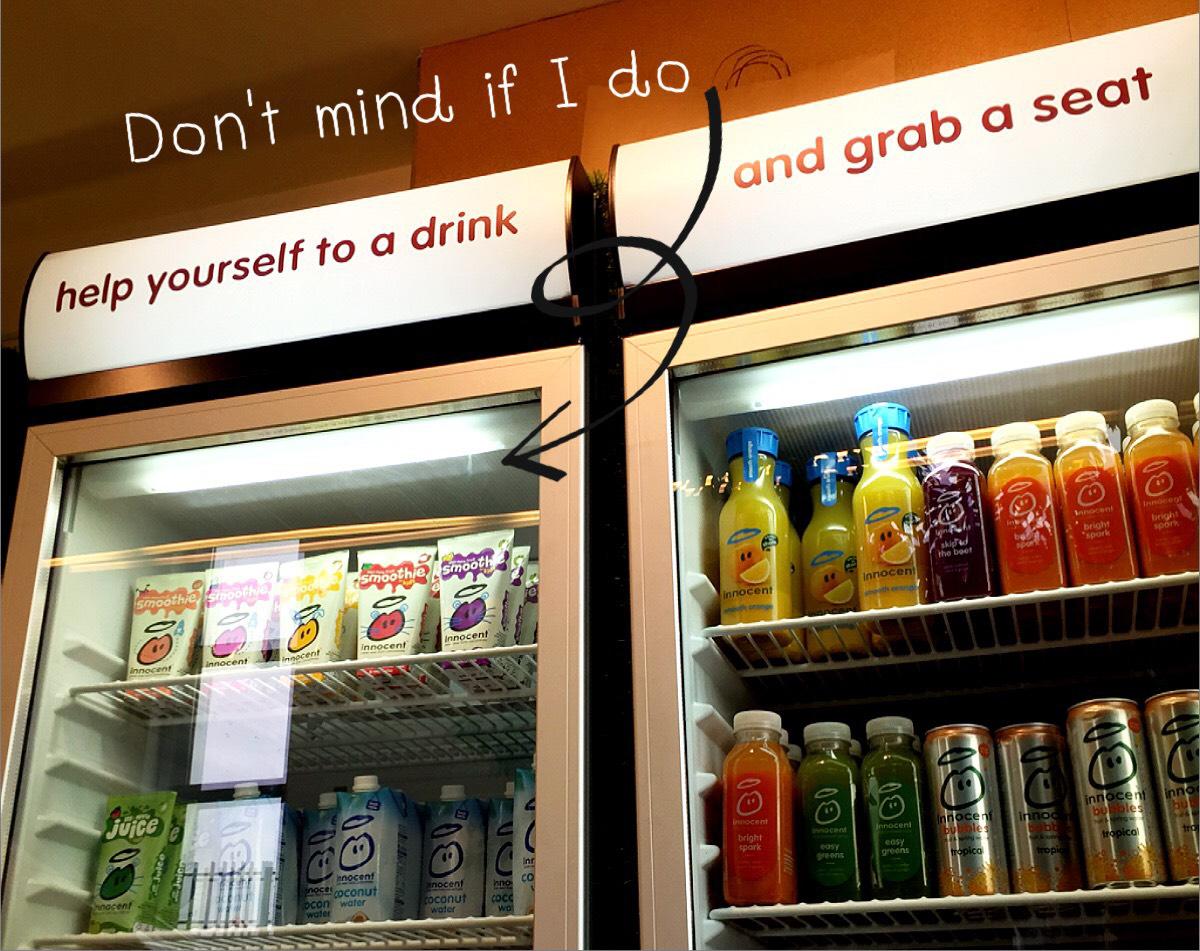
Whereas, “when you bite into an apple,” explains dietitian Kristen Crothers, “the fruit sugar (or fructose) is inside a plant cell and your body has to break down before it is released into your system. Therefore you do not get the same blood sugar rise.” In conclusion, don’t waste your money on a £4.50 “super-berry” concoction and buy a sodding apple instead.
There you have it, folks. Don’t turn your nose up at me for munching on a packet of Haribo when you’ve just consumed 10 and a half oranges worth of sugar in one “clean” smoothie. Sugar is sugar is sugar. Stick THAT in your Nutribullet and CHUG CHUG CHUG CHUG e.t.c, e.t.c.




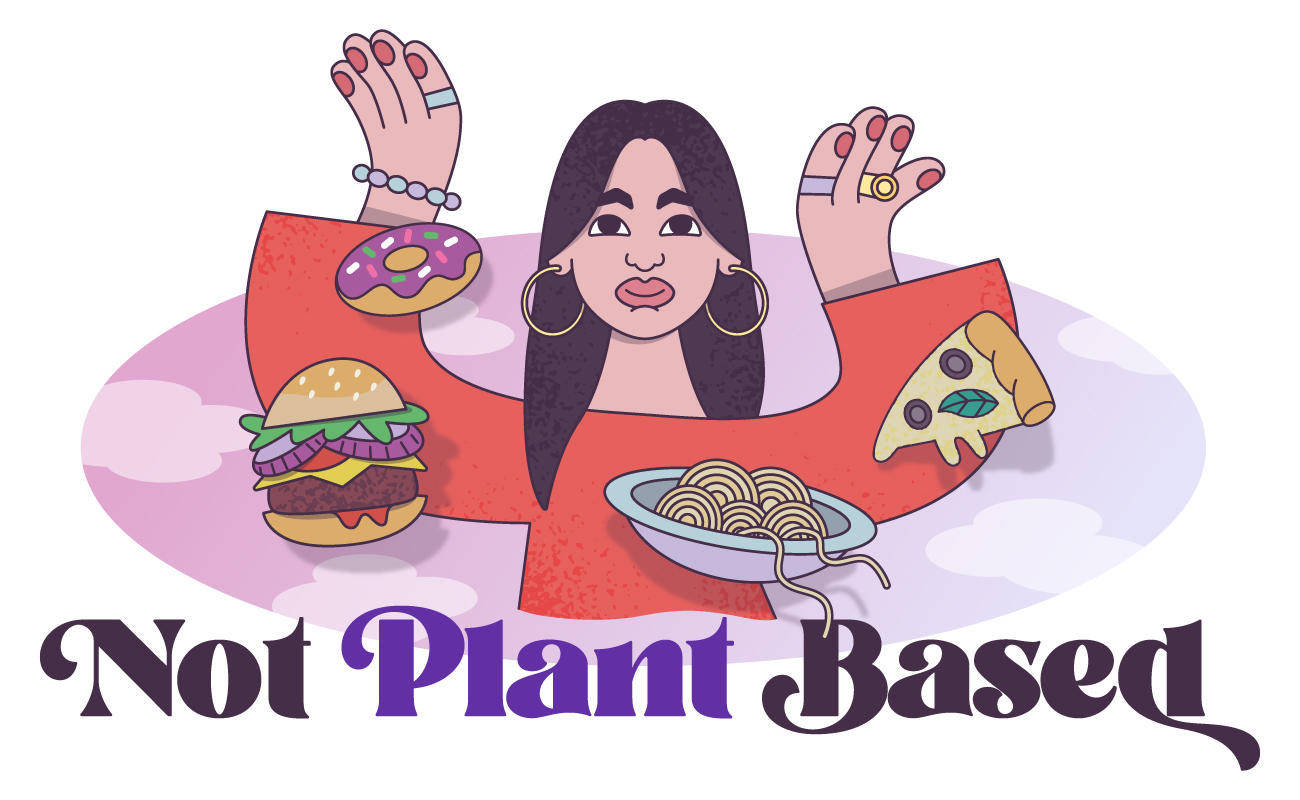

 Take the humble Baked Bean. You wouldn’t necessarily lump a tin of the Heinz’ favourite in the same category as a salmon fillet or green salad, but nutritionally speaking, some might say it’s on a par. “Baked Beans are a great, easy meal to make,” says dietitian Frankie Phillips, “you can get low sugar varieties and you get all the nutritional benefits from the fibre, as well as the vegetable protein.” Yep, that’s right, Baked Beans actually come dietitian recommended. Breakfast cereals are another example. Porridge, for instance, is 100 per-cent wholegrain and, providing you don’t add any honey or sugar, it’s totally sugar-free (hence why it’s hailed as the holy grail by “wellness” bloggers). Pretty nutritious, although that doesn’t mean it’s necessarily MORE nutritious than other breakfast options which may contain a teeny, tiny amount of the sweet stuff.
Take the humble Baked Bean. You wouldn’t necessarily lump a tin of the Heinz’ favourite in the same category as a salmon fillet or green salad, but nutritionally speaking, some might say it’s on a par. “Baked Beans are a great, easy meal to make,” says dietitian Frankie Phillips, “you can get low sugar varieties and you get all the nutritional benefits from the fibre, as well as the vegetable protein.” Yep, that’s right, Baked Beans actually come dietitian recommended. Breakfast cereals are another example. Porridge, for instance, is 100 per-cent wholegrain and, providing you don’t add any honey or sugar, it’s totally sugar-free (hence why it’s hailed as the holy grail by “wellness” bloggers). Pretty nutritious, although that doesn’t mean it’s necessarily MORE nutritious than other breakfast options which may contain a teeny, tiny amount of the sweet stuff.



I enjoyed this article
Just wanted to say thanks for this. I have just moved to a very hip and trendy city, no more NHS or security blanket and my eating has been suffering. One thing I can’t get out of, is my issue with sugar and carbs. I have always had a sweet tooth and, much though I love cheese, would rather finish my meal with chocolate. I have your book and I have recently discovered the website (doing things backwards as always). This and all your stuff really helps. Please don’t stop!!